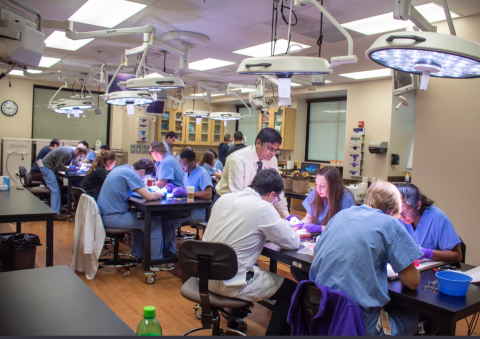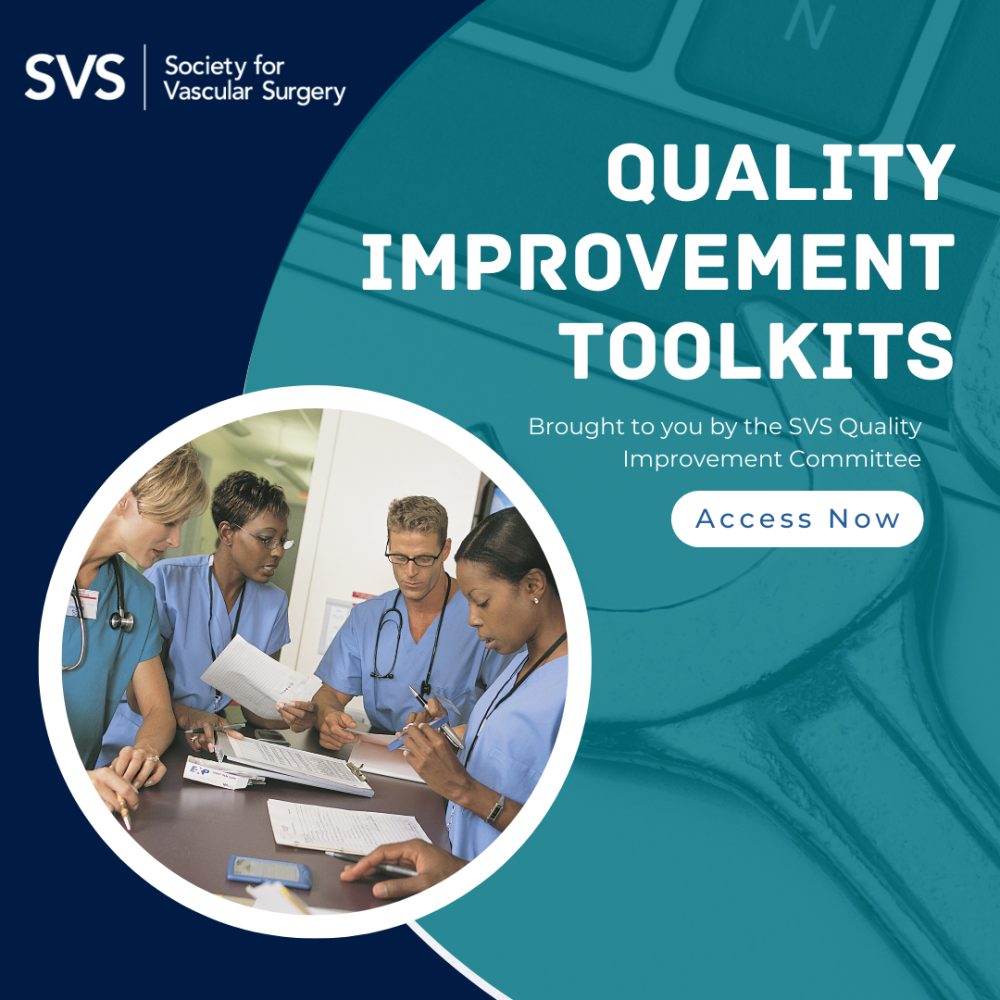
Quality
SVS sustains and advances high-quality vascular care through its determination of appropriateness, engagement in quality improvement efforts, commitment to scientific methodology, and creation of quality measures to solidify the specialty.
SVS is committed to improving the quality of vascular care for our patients. Through its committees and programs, the society is addressing the ever-changing healthcare environment to reflect the needs of the vascular specialists and the patients they serve.
Quality is a large component of the SVS mission to advance excellence and innovation. Quality collaborates with education, advocacy, research and social awareness to address health issues plaguing patients.
Quality Improvement (QI) Consulting Program
We are excited to announce the SVS Quality Improvement (QI) Consulting Program, through the Quality Improvement Committee (QIC).
This free member benefit provides guidance to SVS members performing quality improvement activities at all stages — from getting started, to troubleshooting challenges, to sharing project outcomes. Our goal is to provide expert feedback and support as you navigate the changing healthcare environment and regulatory requirements.

Quality Improvement Toolkits
The SVS Quality Improvement Committee has created toolkits to help physicians improve patient care and outcomes. Select a toolkit to get started.
Appropriateness Use Criteria
SVS is committed to maximizing patient health outcomes through the decision-making process based on available resources.
Characteristics between Evidence Based Resources
| Clinical Practice Guidelines | Reporting Standards | Appropriate Use Criteria |
|---|---|---|
| Evaluates evidence in scientific literature | Provide consistency of definitions and classifications | AUC is the tool to determine if an intervention is appropriate for the patient’s condition as determined by a through literature search and determination by an expert panel |
| Assesses benefit and harms of treatment | The goal of the panel is to determine if the intervention benefits outweigh the harm | |
| Allows for individual customization of care per provider | AUC typically follows the publication of a CPG |
The first SVS AUC on Intermittent Claudication was accepted for publication in April 2022. The next AUC topic will be carotid disease.
Resources
Quality Performance Measurement
Learn more about the SVS Quality and Performance Measures Committee and the resources they have created for SVS members and vascular care professionals.
How Medicare Quality Requirements Will Impact Reimbursement
In Feb. 2024 SVS hosted the webinar, How Medicare Quality Requirements Will Impact Reimbursement & Practice Tips to Successfully Meet Them.

Quality Improvement
SVS Quality Improvement Mission is to help all SVS members engage in quality improvement initiatives that are meaningful for patients, feasible for vascular specialists in all types of practice, and demonstrable to payors or other interested parties.
“Success will come to those practitioners and organizations who successfully make the transformation from the current practice of assuming quality to actually measuring and improving it.”
In 1997, Dr. Goldstone spoke these words to emphasize the importance of quality improvement in vascular care. To learn more about Dr. Goldstone’s vision, please read his International Society for Cardiovascular Surgery, North American Chapter Presidential Address.
Join us! The Quality Improvement Forum on SVS Connect is a space for open conversation about quality improvement with your colleagues across the country.
Watch now: Hear from Dr. Jessica Simons, Chair of the Quality Improvement Committee.